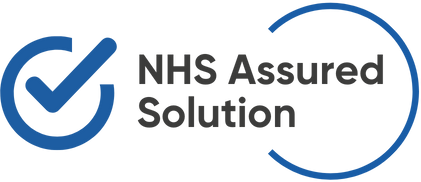Utilising care technology to improve the delivery of home care
Technological advancements. Digital transformation. Software solutions. No matter the description, the outcome remains the same – technology is advancing, and so are we.
Pixels to peak
As the creators and users of such technology, we as humans are finding more methods to make our lives easier, including the improvement of our health and wellbeing.
In particular, the revolutionary advancement of smartphones and mobile devices in the last decade has changed the world for the better. We have moved from basic telephone calls to texting, onto playing snake and colour screens. Now, we are at a peak of technology, with the widespread use of apps and mobile internet.
Innovation, invention & imagination
Throughout the last few years, the Care Quality Commission has released case studies about driving improvements through technology. In its latest report from July 2019, the CQC states: “one of our strategic priorities is to encourage innovation, as we know it can drive improvements in the quality of care.”
The innovation and drive to improve technology within care has also been the focus of the recent Care Innovation Challenge. The hackathon-style event invites people from various backgrounds to come together to kick start new ideas and solutions for the care sector. With the finals held on 14th August, previous hacks have included matching algorithms for better carer/patient relationships, apps that monitor sleep patterns of people with dementia to predict behaviour during the day, and a simulation suite to raise understanding of the physical restrictions caused by ageing. All extremely creative ways of using technology to improve care.
Person-centred technology
The health and social care industry is already taking advantage of these advancements; creating apps to capture data, encourage personal improvements to health and wellbeing and further communication options for both patients and their carers.
Through the use of technology, such as IQ:timecard MOBILE, remote support workers can prioritise seeing their clients from the moment they enter the building. Instead of having to complete compulsory clocking in upon arrival via a landline, carers can immediately check the welfare of their client, having clocked in discreetly via an app before they enter. Their focus is also on the medication administration and completing tasks, instead of worrying about updating paper charts or informing the office of out-of-date information. The carer has considerably more time to provide vital care to their client thanks to the changes brought in with technology.
Kate Terroni, the Care Quality Commission’s (CQC) Chief Inspector of Adult Social Care recently shared her opinion on technology within care, stating “I strongly believe that technology can greatly improve the experience for staff as well as people receiving services, allowing them to spend less time on paperwork and; instead of enabling them to focus more of their time on doing what they do best – delivering compassionate and person-centred care.”
IQ:timecard MOBILE harnesses such opportunities, making necessary administration as invisible as possible. The reduction of paperwork and tick-box administration frees additional time for care support workers to deliver the best care to their clients.
The use of mobile technology is also helping to improve communication between field and office staff. For example, Unique IQ’s IQ:timecard and IQ:timecard MOBILE work seamlessly together to exchange data in a real-time format, freeing up additional time for administration processing and care provision.
Thanks to technology, we can continue to offer support and help to those who need it. We can spend more time on the things that matter, the people.

